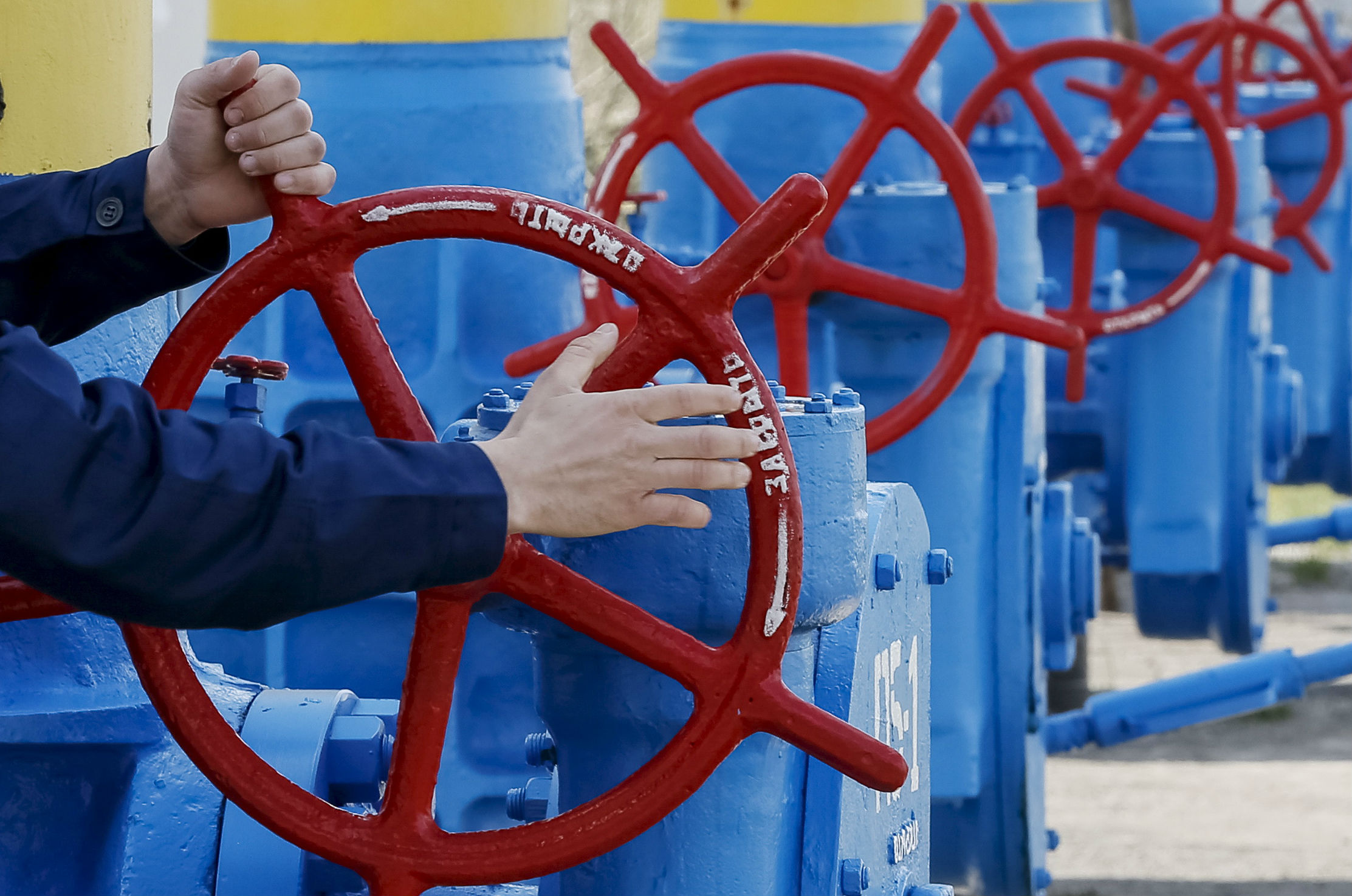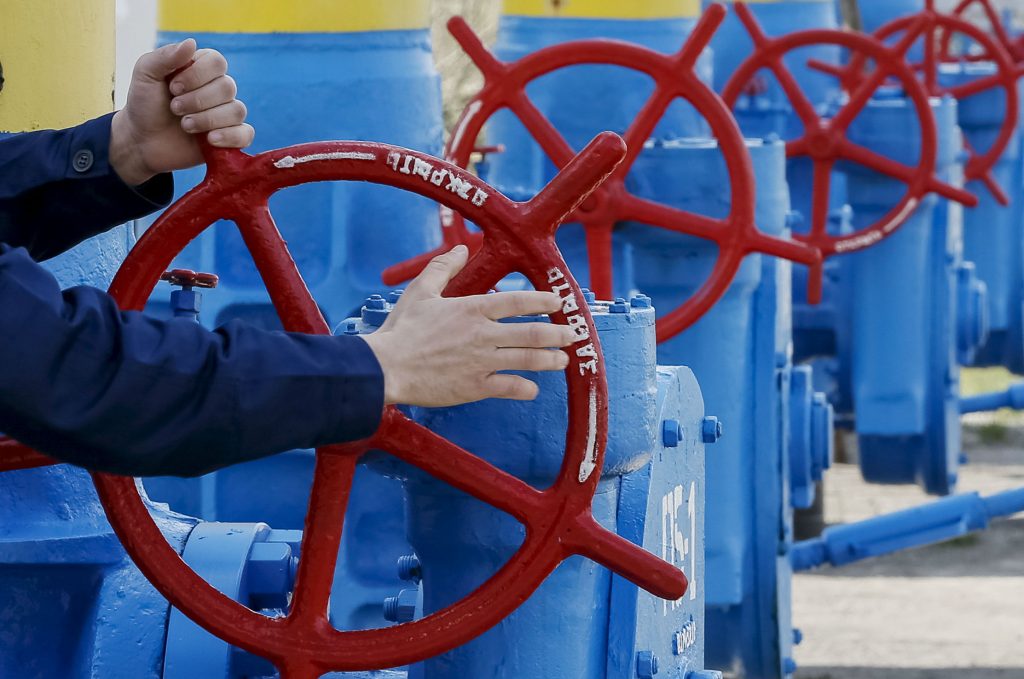 In the course of its reforms, Ukraine has launched one of its most critical markets, the energy market. The state economy is highly energy intensive, based on fossil fuels, and imports-dependent. After having lost 10 percent of its industrial coal and gas-bearing territories, the government needs to make up for its energy shortage. Meanwhile, lying at the heart of Europe, Ukraine is a major European partner in gas transit and storage, and its stability is key to the region’s energy security.
In the course of its reforms, Ukraine has launched one of its most critical markets, the energy market. The state economy is highly energy intensive, based on fossil fuels, and imports-dependent. After having lost 10 percent of its industrial coal and gas-bearing territories, the government needs to make up for its energy shortage. Meanwhile, lying at the heart of Europe, Ukraine is a major European partner in gas transit and storage, and its stability is key to the region’s energy security.
After independence, Ukraine became heavily dependent on Russian gas. But given the hybrid war in the country’s east, the weakened state faces new challenges in negotiating its energy interests: to diversify gas and nuclear fuel supplies, and to contract coal imports for heating and electricity stations. Concurrently, the government needs to increase its own production of gas, modernize its energy infrastructure, and shift to a low-carbon, sustainable, and efficient energy use.
Some significant steps have already been taken, but more effort needs to be made to address the energy market’s inefficiencies. Finally, the most viable ongoing reform is to establish an independent energy regulator. To that end, the bill establishing a national regulator which passed the first reading in parliament should be adopted immediately. Its independence could be ensured through institutional, operational, and financial terms. An independent regulator will remedy market inefficiencies and regulate natural monopolies.
EU energy integration
A key way for Ukraine to ensure energy security is by joining the region’s energy union. Historically, the country had a deep energy connection with Russia, based on the two countries’ connected electricity networks and mutually integrated gas and coal markets. After the Revolution of Dignity in 2014, Ukraine undertook a strong EU integration course, signed the EU-Ukraine association agreement, joined the WTO, and became a contracting party in the Energy Community.
Implementation of the Third Energy Package will increase the domestic market’s competitiveness and strengthen its energy security; it will also liberalize the gas and oil business, as well as Ukraine’s electricity and coal markets. Last autumn, the Parliamentary Plenum of the Energy Community Secretariat was created to establish cooperation in the energy field between the parliaments of the contracting parties and the European Union. This legislative cooperation can help synchronize and secure the country’s interests in the region.
Turning drawbacks into opportunities
Oligarchs have monopolized the gas market since independence. They have made Ukraine artificially dependent on gas imports, pursuing exclusively their own mercantile interests to sell more gas without boosting energy efficiency, increasing national production, or modernizing gas and oil transit networks.
Consequently, energy inefficiency is a dramatic challenge for the economy today. Our country consumes twice as much energy per GDP than the world average, and four times more than the European average. The industry relies more on natural gas than on oil, and remains sensitive to gas prices. Ukraine depends on external energy resources—more than 50 percent are imported—and as a result, currency risks are an issue. The percentage of renewables involved in power generation is limited.
On the other hand, Ukraine’s location at the intersection of several energy flows gives it a significant advantage. It has a well-developed gas transportation infrastructure and Europe’s largest underground gas storage capacities. The biggest share of gas and oil transported from Russia goes through Ukraine.
Additionally, Ukraine’s electricity transmission system is currently in the process of joining the European Network of Transmission System Operators, and market synchronisation with the EU will smooth out some of the system’s risks.
With its highly qualified labor force alongside its natural reservoirs of gas, uranium, and coal, Ukraine has an opportunity to win its rightful place in the global energy market—to become not only an energy independent state, but even an exporter. This is only achievable, however, if the government chooses wise policies.
In the hybrid war, energy is a weapon
Energy has a geopolitical context: energy exporters use prices and supplies as political tools to influence dependent countries. As a major gas and oil supplier in the region, Russia has been known for its mischievous ‘gas wars.’
Consequently, an important objective is to prevent a situation where energy can become a weapon in the hybrid war. To prevent this, Ukraine needs to diversify its gas and electricity supplies, develop national production, increase its proportion of renewables, modernize transition systems and synchronize them with regional networks, become a fully-fledged member of regional energy unions, and strengthen its diplomacy.
More specifically, the relationship between Ukraine and the Russian giant Gazprom has always been sensitive. Gazprom transits large volumes of gas to the EU through Ukraine’s gas transmission system. However, due to political reasons, Gazprom plans to bypass this route through the still-unfinished Nord Stream 2 pipelines, which would double its capacity. This project could impede Ukraine’s energy security by bypassing Ukraine, and could lead to gas transit monopolization in Europe.
On January 5, the Energy Community Secretariat passed along to the European Commission a complaint submitted by the Ukrainian company Naftogaz under Article 90 of the Energy Community Treaty. It alleges that Nord Stream 2 would limit gas supply competition, violating Energy Community law.
In fact, the project would worsen the security of Europe’s gas supply and would impede the performance of the Energy Community gas market.
A strong Ukrainian state is key
In times of instability, Ukraine’s weaknesses affect all of Europe. Ukraine needs significant investment in the fundamental areas of its energy sector, especially energy efficiency, renewables, and gas extraction. Nevertheless, that investment would not suffice without structural changes in the energy field.
The Ukrainian parliament and government have taken steps to improve the investment climate and establish clear and reasonable rules in the energy sector. Now Ukraine is open to foreign investors and to national companies that play in accordance with the rules of a competitive and transparent market.
Nataliya Katser-Buchkovska is a member of the Ukrainian parliament, where she serves as chair of the Subcommittee on Sustainable Development, Strategy, and Investments within the Committee on Energy, Nuclear Policy, and Security.
Image: An employee turns a valve at a gas compressor station in the village of Boyarka, outside Kyiv, April 22, 2015. REUTERS/Gleb Garanich
